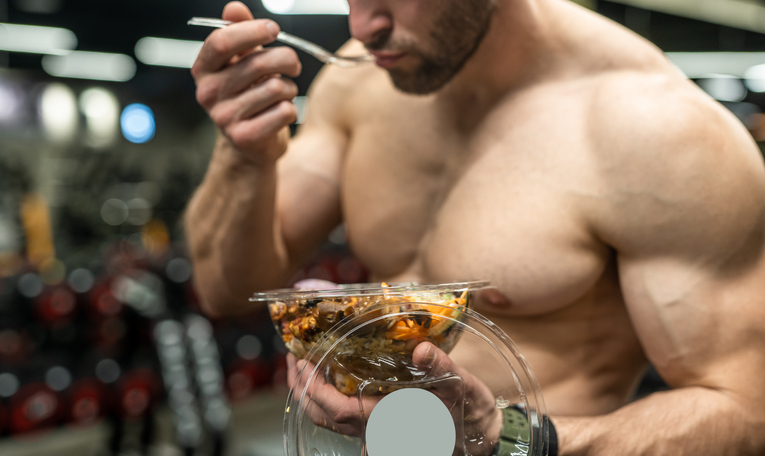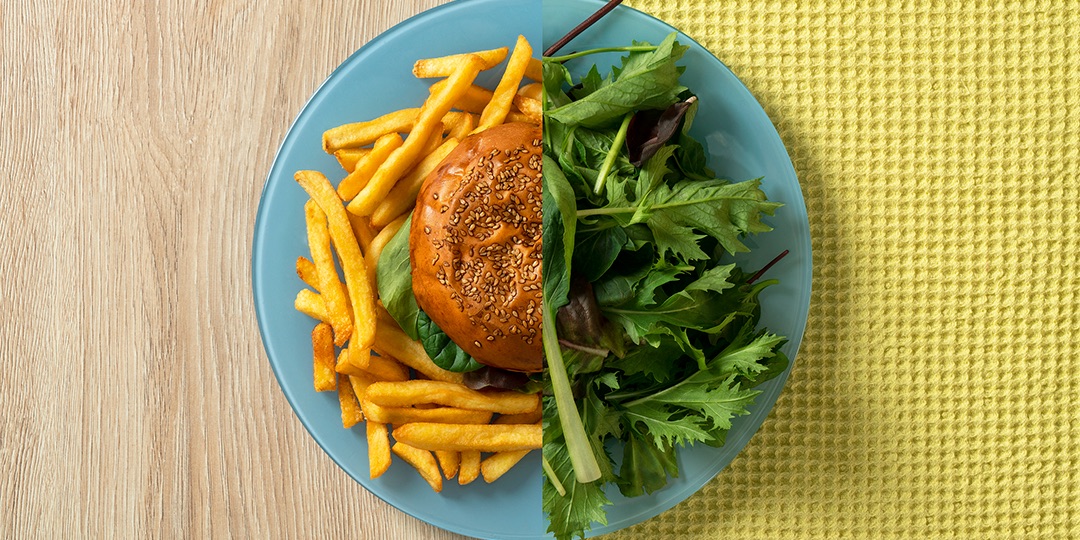For those looking to increase muscle mass, bulking is a common strategy that involves consuming extra calories over a set period to build muscle. There are two main approaches to bulking: "clean" and "dirty." Let's explore the difference between a dirty bulk and clean bulk.
While the terms "clean" and "dirty" can be a bit misleading, they are commonly used in the fitness world to describe different bulking strategies:
- In a "clean" bulk, individuals focus on consuming whole, minimally processed foods such as vegetables, high-calorie carbohydrates, and healthy fats.
- In a "dirty" bulk, individuals opt for processed, calorie-dense foods like burgers, fries, and pastries.
Each approach has its pros and cons, so let's take a closer look at the benefits and drawbacks of a dirty bulk versus a clean bulk.
"Clean" Bulking

The cons
One of the challenges of a clean bulk is the difficulty of consuming large amounts of whole, nutritious foods that are filling and nutrient-dense.
Trainer Angelo Poli notes, "It’s way harder to force down tons of chicken breasts and salad than it is to overeat chips and doughnuts."
The pros
Despite the challenges, a clean bulk offers health benefits compared to a dirty bulk. Consuming nutrient-rich foods can be beneficial for overall well-being and fitness results.
When bulking clean, individuals focus on whole foods like lean protein, complex carbs, and healthy fats to support muscle growth.
The clean bulk menu
A typical clean bulk meal may include a large portion of protein, double servings of carbs, and a generous amount of vegetables with healthy fats like olive oil.
Including sources of healthy fats such as nuts, eggs, and dairy can help support muscle growth during a clean bulk.
"Dirty" Bulking

The pros
For individuals struggling to gain weight, a dirty bulk can be effective in providing the extra calories needed for muscle growth.
While indulging in calorie-dense, processed foods can be enjoyable at first, it can lead to weight gain and muscle growth for some individuals.
The cons
However, continuous consumption of unhealthy, processed foods can have negative effects on health and may lead to issues like elevated blood sugar and cholesterol.
Additionally, it can be challenging to transition away from a dirty bulk once it becomes a habit.
The dirty bulk menu
A dirty bulk diet may include processed foods like desserts, fast food, and high-calorie snacks to increase caloric intake.
While incorporating some processed foods can help with weight gain, it's important to balance them with nutrient-rich whole foods for overall health.
Choosing Between Clean and Dirty Bulking

When deciding between clean and dirty bulking, it's essential to prioritize health and overall well-being. Starting with clean, whole foods and gradually incorporating processed foods if needed can help achieve muscle growth while maintaining health.
Ultimately, the goal of bulking is to consume a caloric surplus to support muscle growth. Whether opting for a clean or dirty bulk, monitoring weight gain and adjusting food intake accordingly is key to achieving desired results.
